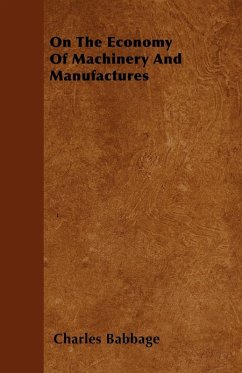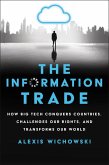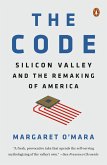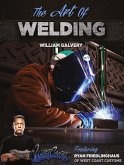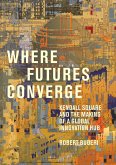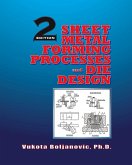Charles Babbage
On The Economy Of Machinery And Manufactures (eBook, ePUB)
7,99 €
7,99 €
inkl. MwSt.
Sofort per Download lieferbar

4 °P sammeln
7,99 €
Als Download kaufen

7,99 €
inkl. MwSt.
Sofort per Download lieferbar

4 °P sammeln
Jetzt verschenken
Alle Infos zum eBook verschenken
7,99 €
inkl. MwSt.
Sofort per Download lieferbar
Alle Infos zum eBook verschenken

4 °P sammeln
Charles Babbage
On The Economy Of Machinery And Manufactures (eBook, ePUB)
- Format: ePub
- Merkliste
- Auf die Merkliste
- Bewerten Bewerten
- Teilen
- Produkt teilen
- Produkterinnerung
- Produkterinnerung
- Weitere 6 Ausgaben:
- Gebundenes Buch
- Gebundenes Buch
- Broschiertes Buch
- Broschiertes Buch
- Broschiertes Buch
- Broschiertes Buch

Bitte loggen Sie sich zunächst in Ihr Kundenkonto ein oder registrieren Sie sich bei
bücher.de, um das eBook-Abo tolino select nutzen zu können.
Hier können Sie sich einloggen
Hier können Sie sich einloggen
Sie sind bereits eingeloggt. Klicken Sie auf 2. tolino select Abo, um fortzufahren.

Bitte loggen Sie sich zunächst in Ihr Kundenkonto ein oder registrieren Sie sich bei bücher.de, um das eBook-Abo tolino select nutzen zu können.
Charles Babbage is considered by many the father of computing, building the first programmable computer, his difference engine. This is a fascinating and readable account of how this genius saw that machinery could help improve the economy.
- Geräte: eReader
- ohne Kopierschutz
- eBook Hilfe
Andere Kunden interessierten sich auch für
![The Information Trade (eBook, ePUB) The Information Trade (eBook, ePUB)]() Alexis WichowskiThe Information Trade (eBook, ePUB)18,18 €
Alexis WichowskiThe Information Trade (eBook, ePUB)18,18 €![Ingenium (eBook, ePUB) Ingenium (eBook, ePUB)]() Mark DennyIngenium (eBook, ePUB)21,95 €
Mark DennyIngenium (eBook, ePUB)21,95 €![The Code (eBook, ePUB) The Code (eBook, ePUB)]() Margaret O'MaraThe Code (eBook, ePUB)3,99 €
Margaret O'MaraThe Code (eBook, ePUB)3,99 €![The Art of Welding (eBook, ePUB) The Art of Welding (eBook, ePUB)]() William GalveryThe Art of Welding (eBook, ePUB)27,95 €
William GalveryThe Art of Welding (eBook, ePUB)27,95 €![Where Futures Converge (eBook, ePUB) Where Futures Converge (eBook, ePUB)]() Robert BuderiWhere Futures Converge (eBook, ePUB)19,95 €
Robert BuderiWhere Futures Converge (eBook, ePUB)19,95 €![Coach Driving in the 1800s - The Roads of Brighton, Bath and Dover (eBook, ePUB) Coach Driving in the 1800s - The Roads of Brighton, Bath and Dover (eBook, ePUB)]() Henry Charles SomersetCoach Driving in the 1800s - The Roads of Brighton, Bath and Dover (eBook, ePUB)5,99 €
Henry Charles SomersetCoach Driving in the 1800s - The Roads of Brighton, Bath and Dover (eBook, ePUB)5,99 €![Sheet Metal Forming Processes and Die Design (eBook, ePUB) Sheet Metal Forming Processes and Die Design (eBook, ePUB)]() Vukota BoljanovicSheet Metal Forming Processes and Die Design (eBook, ePUB)47,95 €
Vukota BoljanovicSheet Metal Forming Processes and Die Design (eBook, ePUB)47,95 €-
-
-
Charles Babbage is considered by many the father of computing, building the first programmable computer, his difference engine. This is a fascinating and readable account of how this genius saw that machinery could help improve the economy.
Dieser Download kann aus rechtlichen Gründen nur mit Rechnungsadresse in A, D ausgeliefert werden.
Produktdetails
- Produktdetails
- Verlag: Read Books Ltd.
- Seitenzahl: 336
- Erscheinungstermin: 3. Juni 2013
- Englisch
- ISBN-13: 9781473380783
- Artikelnr.: 42049515
- Verlag: Read Books Ltd.
- Seitenzahl: 336
- Erscheinungstermin: 3. Juni 2013
- Englisch
- ISBN-13: 9781473380783
- Artikelnr.: 42049515
- Herstellerkennzeichnung Die Herstellerinformationen sind derzeit nicht verfügbar.
Preface
Introduction
1. Sources of the advantages arriving from machinery and manufactures
2. Accumulating power
3. Regulating power
4. Increase and diminution of velocity
5. Extending time of action of forces
6. Saving time in natural operations
7. Exerting forces too great for human power
8. Registering operations
9. Economy of materials employed
10. Of the identity of the work when it is of the same kind
11. Of copying
12. On the method of observing manufactories
13. On the difference between making and manufacturing
14. On the influence of verification upon price
15. On the influence of durability on price
16. On price, as measured by money
17. Of raw materials
18. Of the division of labour
19. On the division of mental labour
20. On the separate cost of each process in a manufacture
21. On the causes and consequences of large factories
22. On the position of great factories
23. On over-manufacturing
24. Inquiries previous to commencing any manufactory
25. On contriving machinery
26. Proper circumstances for the application of machinery
27. On the duration of machinery
28. On combination amongst masters or workmen against each other
29. On combinations of masters against the public
30. On the effect of taxes
31. On the exportation of machinery
32. On the future prospects of manufactures, as connected with science.
Introduction
1. Sources of the advantages arriving from machinery and manufactures
2. Accumulating power
3. Regulating power
4. Increase and diminution of velocity
5. Extending time of action of forces
6. Saving time in natural operations
7. Exerting forces too great for human power
8. Registering operations
9. Economy of materials employed
10. Of the identity of the work when it is of the same kind
11. Of copying
12. On the method of observing manufactories
13. On the difference between making and manufacturing
14. On the influence of verification upon price
15. On the influence of durability on price
16. On price, as measured by money
17. Of raw materials
18. Of the division of labour
19. On the division of mental labour
20. On the separate cost of each process in a manufacture
21. On the causes and consequences of large factories
22. On the position of great factories
23. On over-manufacturing
24. Inquiries previous to commencing any manufactory
25. On contriving machinery
26. Proper circumstances for the application of machinery
27. On the duration of machinery
28. On combination amongst masters or workmen against each other
29. On combinations of masters against the public
30. On the effect of taxes
31. On the exportation of machinery
32. On the future prospects of manufactures, as connected with science.
Preface
Introduction
1. Sources of the advantages arriving from machinery and manufactures
2. Accumulating power
3. Regulating power
4. Increase and diminution of velocity
5. Extending time of action of forces
6. Saving time in natural operations
7. Exerting forces too great for human power
8. Registering operations
9. Economy of materials employed
10. Of the identity of the work when it is of the same kind
11. Of copying
12. On the method of observing manufactories
13. On the difference between making and manufacturing
14. On the influence of verification upon price
15. On the influence of durability on price
16. On price, as measured by money
17. Of raw materials
18. Of the division of labour
19. On the division of mental labour
20. On the separate cost of each process in a manufacture
21. On the causes and consequences of large factories
22. On the position of great factories
23. On over-manufacturing
24. Inquiries previous to commencing any manufactory
25. On contriving machinery
26. Proper circumstances for the application of machinery
27. On the duration of machinery
28. On combination amongst masters or workmen against each other
29. On combinations of masters against the public
30. On the effect of taxes
31. On the exportation of machinery
32. On the future prospects of manufactures, as connected with science.
Introduction
1. Sources of the advantages arriving from machinery and manufactures
2. Accumulating power
3. Regulating power
4. Increase and diminution of velocity
5. Extending time of action of forces
6. Saving time in natural operations
7. Exerting forces too great for human power
8. Registering operations
9. Economy of materials employed
10. Of the identity of the work when it is of the same kind
11. Of copying
12. On the method of observing manufactories
13. On the difference between making and manufacturing
14. On the influence of verification upon price
15. On the influence of durability on price
16. On price, as measured by money
17. Of raw materials
18. Of the division of labour
19. On the division of mental labour
20. On the separate cost of each process in a manufacture
21. On the causes and consequences of large factories
22. On the position of great factories
23. On over-manufacturing
24. Inquiries previous to commencing any manufactory
25. On contriving machinery
26. Proper circumstances for the application of machinery
27. On the duration of machinery
28. On combination amongst masters or workmen against each other
29. On combinations of masters against the public
30. On the effect of taxes
31. On the exportation of machinery
32. On the future prospects of manufactures, as connected with science.
